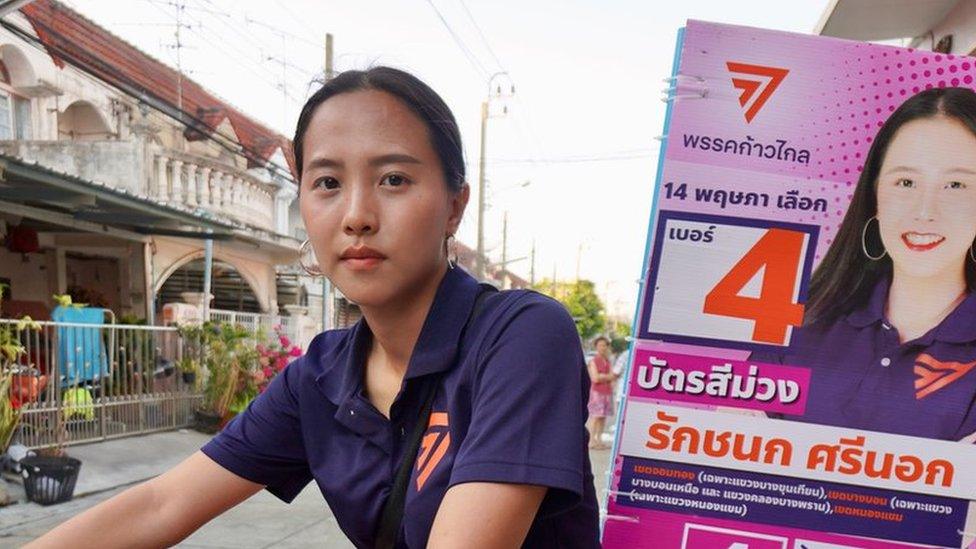Thailand: Popular reformist party Move Forward could be dissolved after court loss
- Published
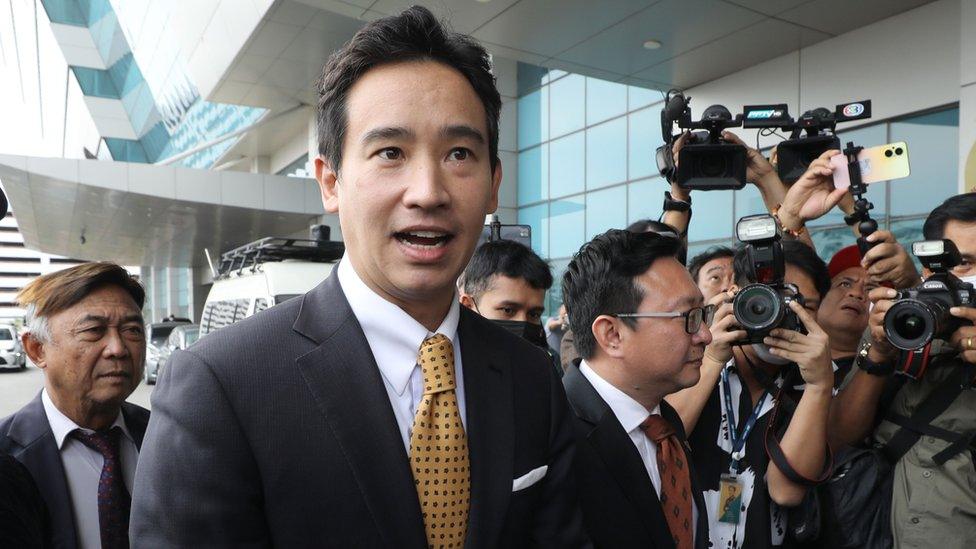
Pita Limjaroenrat's party Move Forward has been found to have breached the constitution
The Thai reformist party which won the most votes at last year's election could be dissolved after a court ruled one of its policies unconstitutional.
Move Forward is not in government but its campaign promise on changing royal defamation laws violated the constitution, a Thai court has found.
Such lese majeste laws have increasingly been used to stifle political criticism, activists say.
It is possible all of the party's leaders could be banned from politics.
Party leader Pita Limjaroenrat, a young, Harvard-educated politician, had been viewed as a significant threat to Thailand's monarchy by and military-aligned elite, when he won a majority of votes in the 2023 election.
His party campaigned on a progressive agenda - and in particular a pledge to amend the controversial lese majeste law, although much of the party's support was for its other proposed reforms.
Despite the mandate, Mr Pita's attempts to become prime minister were blocked by the unelected Senate. A coalition made up of other parties eventually formed the government.
Last week Mr Pita survived another legal case aimed at disqualifying him from parliament. But he and his party failed to win the crucial second case on Wednesday.
The Constitutional Court ruled that Move Forward and its leaders "demonstrated behaviour" which amounted to calling for the overthrow of Thailand's democratic system of government with the King as Head of State.
It ordered them to stop any acts or expression of views, through any medium, which advocated for the abolition of the lese majeste law. It also prohibited amendments to the law by any means other than "lawful legislative measures".
That suggests it might be possible to change the law through parliament, but that no public discussion or social media debate will be allowed.
The verdict carries no immediate penalty but it is widely expected to be used to justify dissolving Move Forward, and banning its leaders from politics for several years.
Given the number of times in Thailand that political parties have been dissolved and leaders banned from politics on much flimsier pretexts, there will now be strong pressure to do the same to Move Forward. Some Thais will conclude that this was always the real objective of the petition to the court.
"I feel that people are being squeezed again," political activist Panusaya Sithijirawattanakul, told the BBC. "The Move Forward party just wanted to amend the lese majeste law. They didn't want to reform the monarchy as we proposed."
In its election campaign the party shied away from activist demands for a complete abolition of the law, calling only for amendment.
Move Forward had argued that it was the legitimate role of an elected parliament to scrutinise a law which is part of the regular penal code. Thailand's lese majeste law has already been significantly changed twice.
But it is still a powerful tool that is used against dissent, activists say.
Earlier this month, a 30-year-old man in Bangkok was sentenced to 50 years in jail for criticising the Thai monarchy.
And more than 260 people have been charged under the law since November 2020. It has been used more often since the pro-democracy protests in 2020 that targeted the monarchy, among other things.
Four years ago Move Forward's previous incarnation, a party called Future Forward, was also dissolved after doing unexpectedly well in an election.
That action by the Constitutional Court set off months of student-led protests, in which unprecedented demands were also made for curbing the king's power.
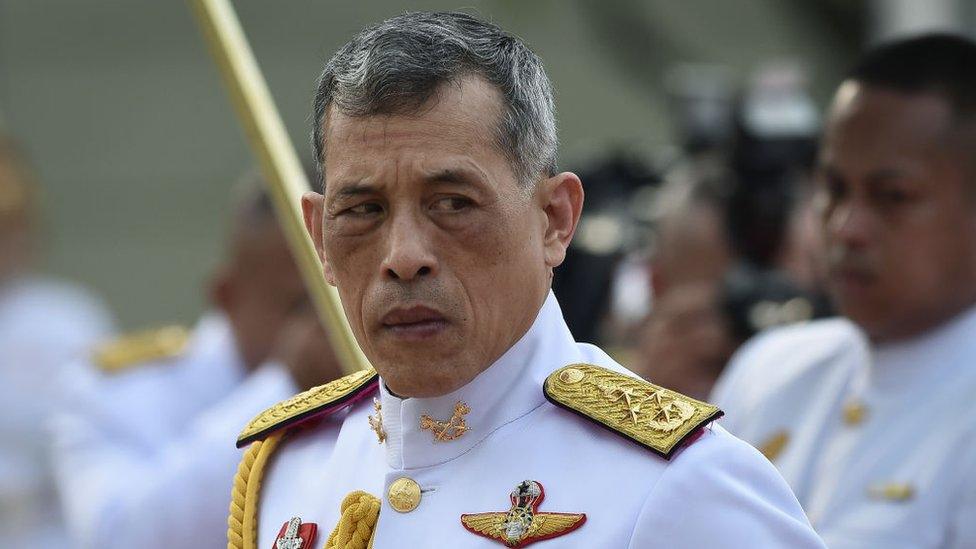
More than 260 people have been charged under the lese majeste law during King Maha Vajiralongkorn's reign
Then in November 2021 the court ruled that three leading activists - including Panusaya - who called for reform of the monarchy during the months-long protests of 2020 had "hidden intentions to overthrow the constitutional monarchy", and ordered them to stop.
All three have faced multiple criminal charges since then.
Many of the other leaders of those protests too still find themselves fighting charges under the lese majeste law, and could face years in prison.
Panusaya doesn't think young people will come out on the streets this time.
"No one dares do anything. They see the leaders being put in jail. They know the risk," she said. "I can't help but think that people are more afraid than before. What we see now is only the dark path. There's no way out."
Additional reporting by Issariya Praithongyaem in London
- Published13 December 2023
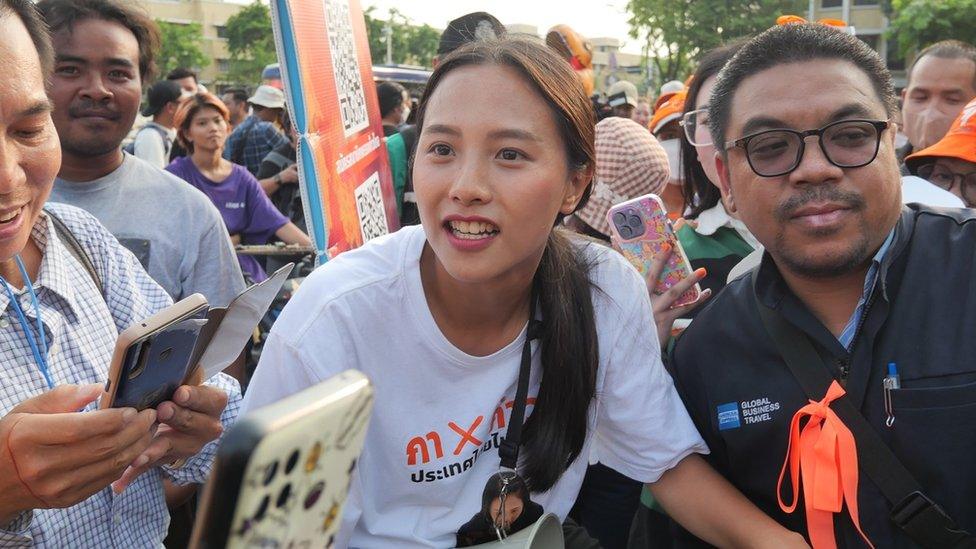
- Published19 January 2021
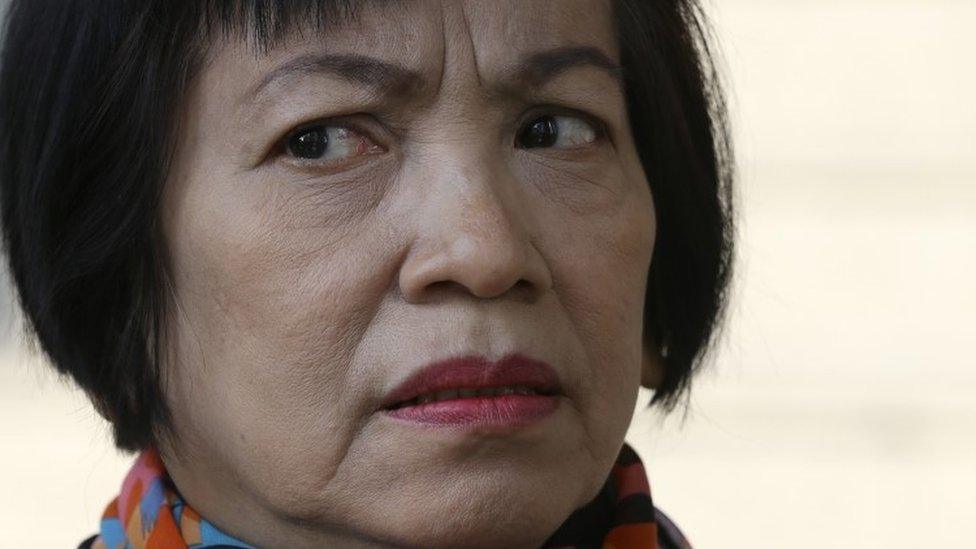
- Published25 November 2020
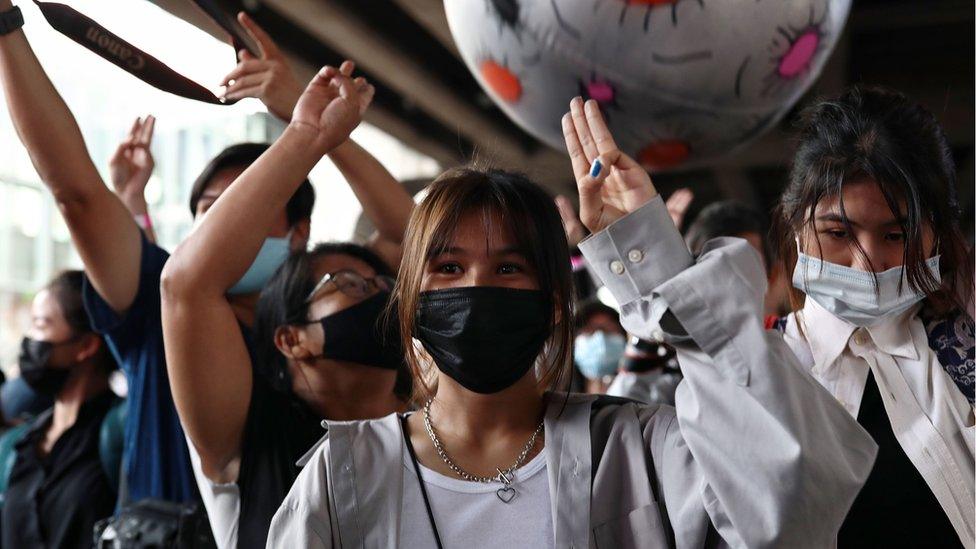
- Published7 May 2023
